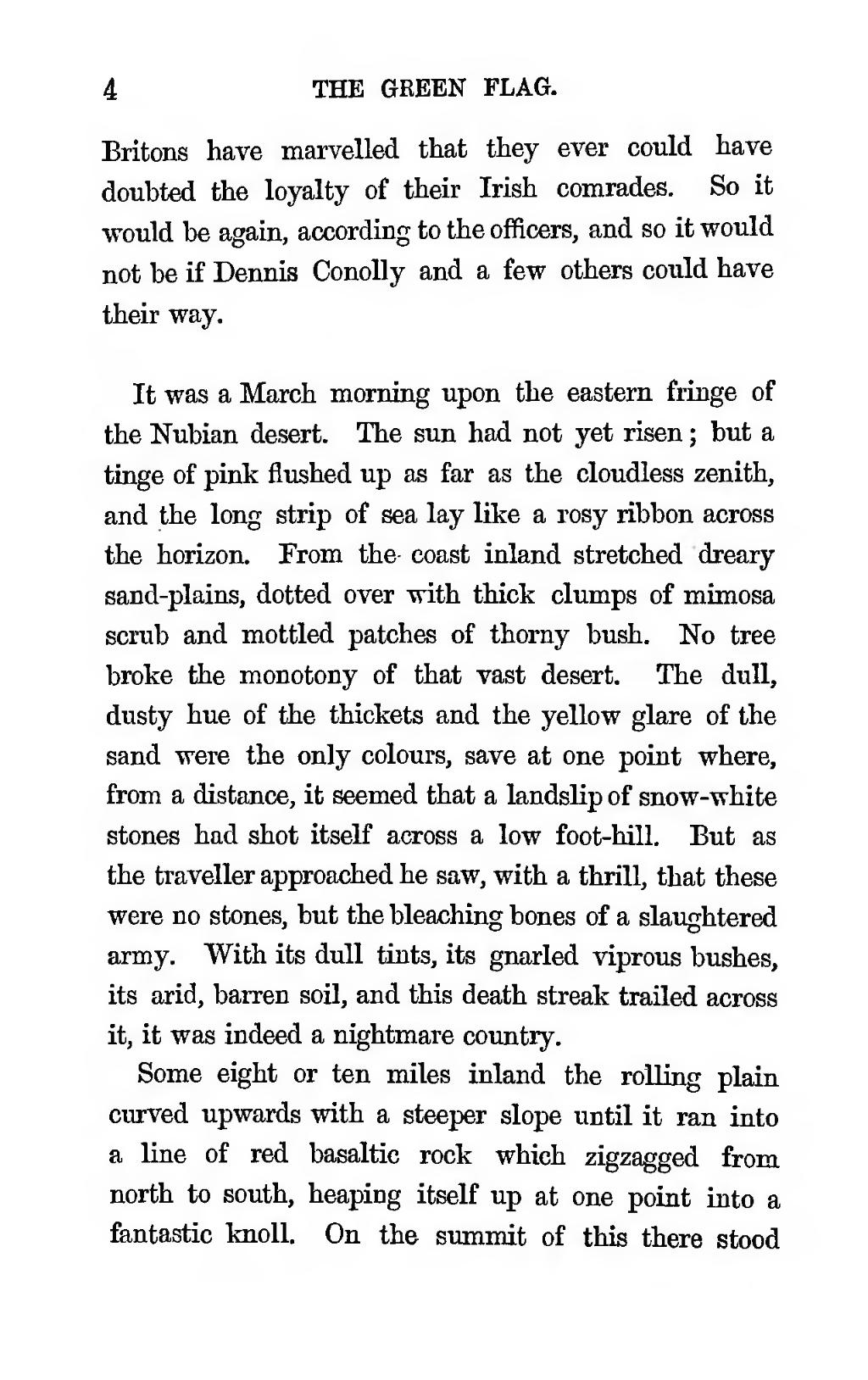Britons have marvelled that they ever could have doubted the loyalty of their Irish comrades. So it would be again, according to the officers, and so it would not be if Dennis Conolly and a few others could have their way.
It was a March morning upon the eastern fringe of the Nubian desert. The sun had not yet risen; but a tinge of pink flushed up as far as the cloudless zenith, and the long strip of sea lay like a rosy ribbon across the horizon. From the coast inland stretched dreary sand-plains, dotted over with thick clumps of mimosa scrub and mottled patches of thorny bush. No tree broke the monotony of that vast desert. The dull, dusty hue of the thickets and the yellow glare of the sand were the only colours, save at one point where, from a distance, it seemed that a landslip of snow-white stones had shot itself across a low foot-hill. But as the traveller approached he saw, with a thrill, that these were no stones, but the bleaching bones of a slaughtered army. With its dull tints, its gnarled viprous bushes, its arid, barren soil, and this death streak trailed across it, it was indeed a nightmare country.
Some eight or ten miles inland the rolling plain curved upwards with a steeper slope until it ran into a line of red basaltic rock which zigzagged from north to south, heaping itself up at one point into a fantastic knoll. On the summit of this there stood
